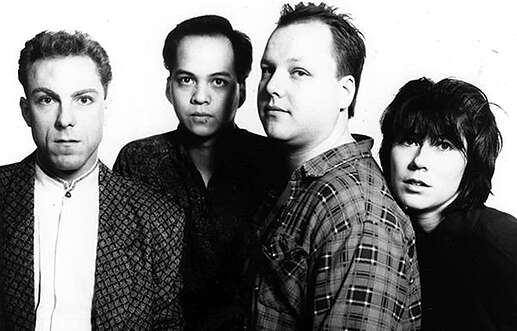Today, I’m thrilled to delve into the fascinating world of indie music - a genre that’s not just about the sound but also embodies a unique ethos and spirit. From its humble beginnings to its evolution into a global cultural phenomenon, indie music has captured the hearts and minds of listeners around the world. So, let’s embark on a journey to explore the history, significance, and allure of indie music.
Understanding Indie Music: Beyond the Mainstream
First things first, what exactly is indie music? At its core, indie music, short for independent music, refers to music produced independently from major commercial record labels. It’s characterized by its DIY (do-it-yourself) ethos, artistic freedom, and non-conformist attitude. Indie artists often prioritize creative expression and authenticity over commercial success, resulting in a diverse range of sounds and styles that defy traditional genre boundaries.

The Birth of Indie: From DIY Roots to Cultural Movement
Indie music traces its roots back to the late 1970s and early 1980s when punk and post-punk bands began self-releasing their music and organising their own gigs outside of the mainstream music industry. These DIY efforts paved the way for the emergence of independent record labels, such as Factory Records and Rough Trade, which provided a platform for alternative and underground artists to reach audiences.
Iconic Indie Artists: Pioneers and Trailblazers
Over the decades, indie music has produced a wealth of iconic artists who have left an indelible mark on the music landscape. From the jangly guitars of The Smiths to the lo-fi charm of Pavement, indie music spans a spectrum of styles and influences. Other notable indie acts include Sonic Youth, Pixies, Arcade Fire, Radiohead, and Vampire Weekend, each bringing their own unique sound and sensibility to the table.
Pixies
What It Means to Be Indie: Embracing Independence and Authenticity
Being indie isn’t just about the music; it’s also a mindset and a way of life. Indie artists value independence, creativity, and authenticity, often shunning the trappings of commercialism and staying true to their artistic vision. DIY ethics, grassroots activism, and a sense of community are hallmarks of the indie ethos, fostering a vibrant and inclusive culture that celebrates individuality and diversity.

The Impact of Indie Music: Shaping Culture and Identity
Indie music has had a profound impact on popular culture, influencing fashion, film, art, and beyond. Its DIY ethos has inspired countless musicians to pursue their passions on their own terms, while its eclectic sounds and subversive attitudes have challenged mainstream conventions and sparked new trends. Indie music serves as a beacon of creativity and rebellion, empowering individuals to carve out their own paths and define their identities on their own terms.
Conclusion: Celebrating the Spirit of Indie Music
In conclusion, indie music isn’t just a genre; it’s a cultural movement that celebrates independence, creativity, and authenticity. From its DIY roots to its global reach, indie music continues to thrive as a haven for artists and listeners alike who march to the beat of their own drum. As university students with a passion for music, let’s continue to explore and champion the rich tapestry of indie sounds and stories that make this genre so special.
I’d love to hear your thoughts and experiences with indie music!
![]() Who are some of your favourite indie artists, and what does indie music mean to you?
Who are some of your favourite indie artists, and what does indie music mean to you?
Some articles about the history of indie music:


